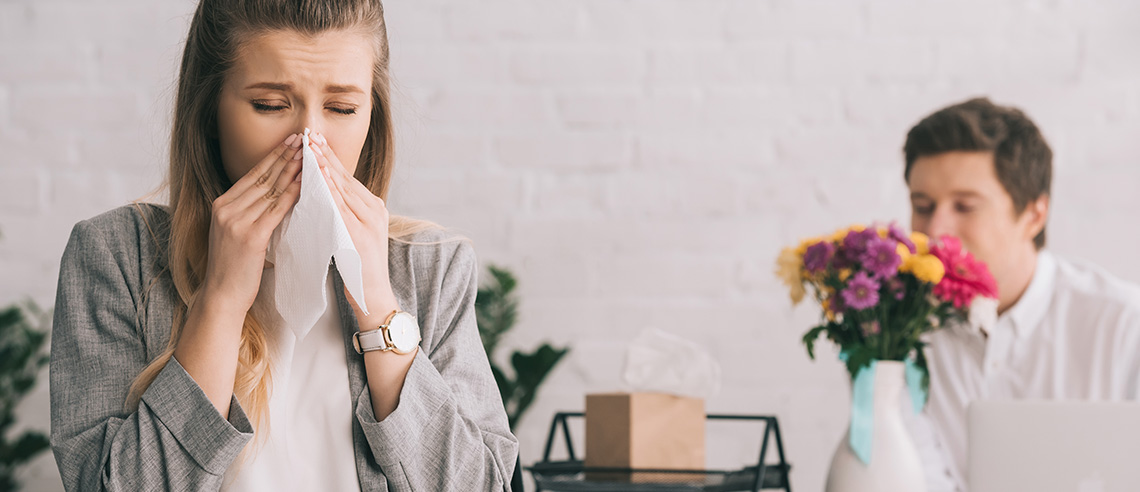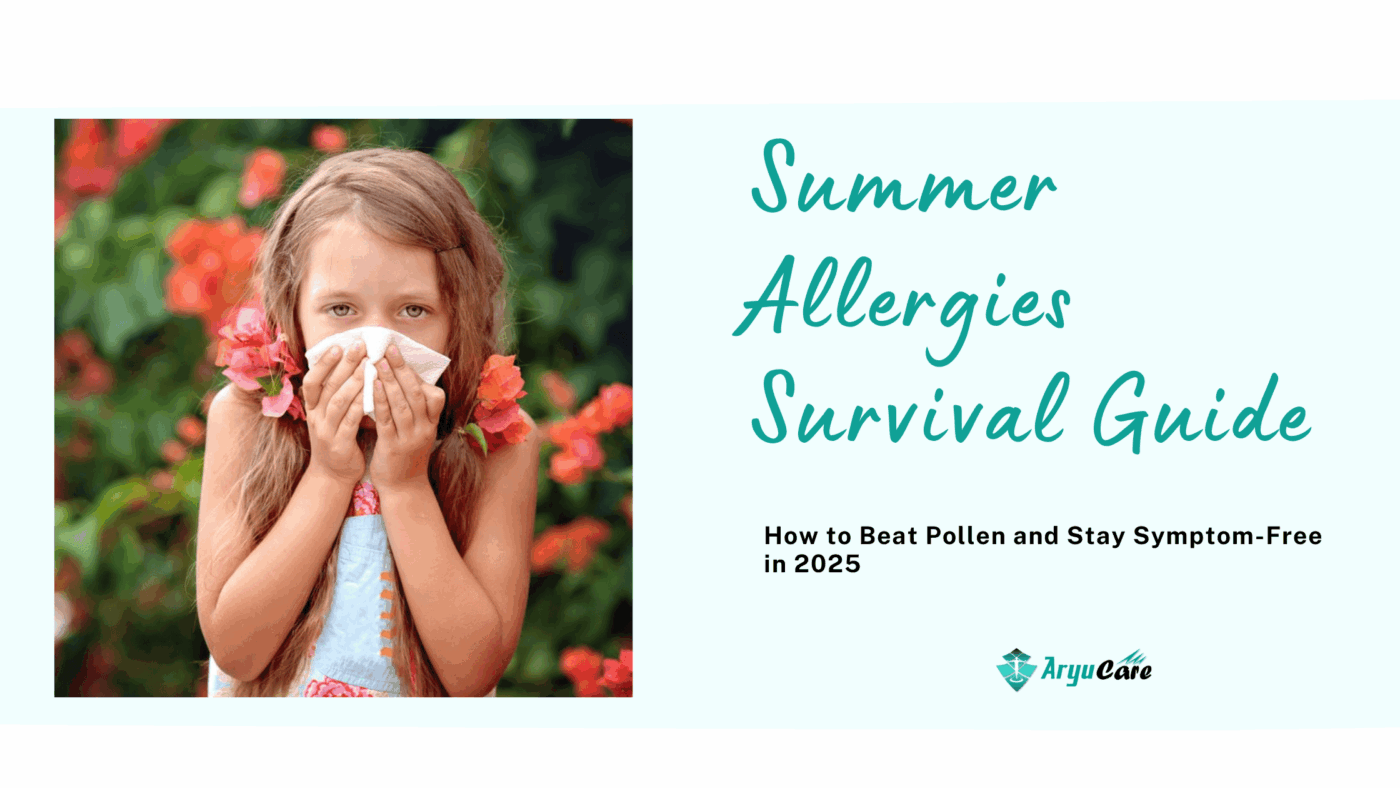Allergy
Summer allergies Survival Guide: How to Beat Pollen and Stay Symptom-Free in 2025
Summer is a time for outdoor adventures, BBQs, and soaking up the sun, but for allergy sufferers, it can also mean sneezing, itchy eyes, and endless discomfort. With pollen levels peaking in 2025 due to warmer temperatures and extended growing seasons, managing summer allergies is more crucial than ever. This comprehensive guide will arm you with practical strategies, expert tips, and cutting-edge solutions to keep pollen at bay and enjoy a symptom-free summer.
Understanding Summer Allergies in 2025
Summer allergies are primarily triggered by pollen from grasses, weeds, and trees, which thrive in warm, dry conditions. In 2025, climate shifts have led to longer pollen seasons, with ragweed and grass pollen being particularly problematic. Symptoms include sneezing, runny nose, itchy eyes, throat irritation, and even asthma flare-ups in severe cases. Knowing your triggers is the first step to staying ahead of allergies.
Actionable Tip: Use a pollen tracking app like Pollen.com or AccuWeather to monitor daily pollen levels in your area. Plan outdoor activities when counts are low, typically after rain or in the early morning.

Build Your Allergy Defense Plan
1. Pollen-Proof Your Home
Your home should be a sanctuary, not a pollen trap. Here’s how to keep allergens out:
-
Keep Windows Closed: Use air conditioning to cool your home and filter out pollen. Opt for HEPA filters in your AC unit for maximum protection.
-
Clean Regularly: Vacuum with a HEPA-filter vacuum and dust surfaces with a damp cloth to trap pollen particles. Wash bedding weekly in hot water.
-
Use Air Purifiers: Invest in a high-quality air purifier with a HEPA filter for bedrooms and living spaces. Brands like Dyson and Blueair are top picks for 2025.
Pro Tip: After spending time outdoors, shower and change clothes immediately to avoid tracking pollen indoors.
2. Optimize Your Diet for Allergy Relief
What you eat can influence your body’s allergic response. Incorporate these anti-inflammatory foods to reduce symptoms:
-
Omega-3 Fatty Acids: Found in salmon, walnuts, and flaxseeds, these helps reduce inflammation.
-
Local Honey: Consuming small amounts of local honey may desensitize your body to local pollen, though evidence is anecdotal.
-
Vitamin C-Rich Foods: Oranges, bell peppers, and strawberries act as natural antihistamines.
Quick Recipe: Try a morning smoothie with spinach, berries, flaxseeds, and a tablespoon of local honey for an allergy-fighting boost.
3. Medications and Treatments
Over the counter (OTC) and prescription options can provide significant relief. Consult a healthcare provider to find what works for you:
-
Antihistamines: Non-drowsy options like loratadine (Claritin) or cetirizine (Zyrtec) are staples for managing symptoms.
-
Nasal Sprays: Fluticasone (Flonase) or budesonide (Rhinocort) reduce nasal inflammation effectively.
-
Immunotherapy: For long-term relief, consider allergy shots or sublingual tablets, which desensitize your immune system to specific allergens. In 2025, telemedicine platforms make consultations for immunotherapy easier than ever.
Note: Start medications a few weeks before peak pollen season for best results.
4. Leverage Technology and Wearables
Tech innovations in 2025 are game changers for summer allergies management:
-
Smart Masks: Wearable air purifiers, like the AirPop Active+ mask, filter out 99% of pollen particles while being lightweight and stylish.
-
Allergy Monitoring Devices: Devices like the Atmotube Pro track air quality in real-time, alerting you to high pollen or pollutant levels.
-
AI-Powered Apps: Apps like MyAllergyAssistant use AI to predict symptom flare-ups based on weather, pollen counts, and your health data.
Try This: Sync a wearable like the Apple Watch with an allergy app to get personalized alerts and track symptom patterns.

Lifestyle Hacks for Symptom-Free Days
-
Time Your Outdoor Activities: Pollen counts peak between 10 a.m. and 4 p.m. Schedule hikes, runs, or picnics for early morning or late evening.
-
Protect Your Eyes: Wear wraparound sunglasses to shield your eyes from pollen. Brands like Oakley offer UV protection and a snug fit.
-
Stay Hydrated: Drinking water thins mucus, reducing nasal congestion. Aim for 8-10 glasses daily.
-
Exercise Indoors: On high-pollen days, opt for gym workouts or home yoga sessions to avoid triggering symptoms.
When to See a Specialist
If OTC treatments and lifestyle changes aren’t enough, consult an allergist. Persistent symptoms, frequent sinus infections, or asthma exacerbations warrant professional evaluation. In 2025, virtual allergist consultations are widely available, making it easier to get a tailored treatment plan.
Find a Specialist: Use platforms like Zocdoc or contact the American Academy of Allergy, Asthma & Immunology for referrals.
Looking Ahead: Allergy Trends in 2025
With climate change extending pollen seasons, proactive management is key. Researchers predict that pollen counts could rise by 20% in some regions by 2030, so building habits now will prepare you for future summers. Stay informed about new treatments, like biologics for severe allergies, which are gaining traction in clinical trials.
Final Thoughts
Summer 2025 doesn’t have to be a sneeze-filled struggle. By pollen-proofing your home, optimizing your diet, using medications strategically, and embracing new tech, you can enjoy the season to the fullest. Start implementing these tips today and breathe easy all summer long.


